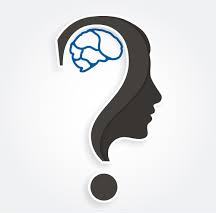 We all hear the phrase used as an excuse for a bit of memory lapse … that it’s just a “senior moment.” It doesn’t seem to be ageist, because in older adult communities the phrase gets tossed around about as frequently as “hello” or “goodbye.” But it’s wrong. This time of COVID places us all at risk for the “Memory Moments,” because they’re not caused by age. Yes, short term recall issues are something to which we all are susceptible, but they are not caused by age. Memory issues like dementia are not caused by age; they have organic causes. There are steps we all can take to stay more mentally sharp no matter our age and despite COVID.
We all hear the phrase used as an excuse for a bit of memory lapse … that it’s just a “senior moment.” It doesn’t seem to be ageist, because in older adult communities the phrase gets tossed around about as frequently as “hello” or “goodbye.” But it’s wrong. This time of COVID places us all at risk for the “Memory Moments,” because they’re not caused by age. Yes, short term recall issues are something to which we all are susceptible, but they are not caused by age. Memory issues like dementia are not caused by age; they have organic causes. There are steps we all can take to stay more mentally sharp no matter our age and despite COVID.
During this time of sustained pandemic quarantine – for those of you following the state and local mandates, that is – memory lapses can seem to become more common. Even these “COVID moments” are not inevitable, however, if you keep your mind engaged and active. Here are six tips to help fend off the cognitive impact of COVID 19:
- Do Something New – We all have heard about “lifelong learning” as it may describe someone who seems always to be pursuing new knowledge, a new language or a new craft. Your brain still has a lot of room to expand what you know, so keep at it.
- Don’t Cram – Just like the tests when you were back in school, the best learning cannot happen the night before the exam. Spread your learning of a new language or a new musical instrument over a number of sittings and days, and it will more effectively take root.
- One More Time – The learning takes place over time, and you need to go over the same ground over and over. Repetition is important so that the new language you’re studying becomes like a new habit.
- More Senses Make More Sense – When you are working a new recipe in the kitchen, you learn by reading, tasting, smelling, touching, etc. With learning a language, you learn by seeing, hearing, writing, saying, and so on. Use as many senses as you can to maximize your cognitive process.
- Don’t Sweat the Small Stuff – It’s okay to let your devices or your habits free up your brain to work on the new things you want to learn. Make a written list of your “to do’s.” It will free up the brain space to actually determine how to do what you want to get done.
- Yes You Can – Don’t ever call it your “senior moment,” because that means you have lost confidence in you. While you are practicing what you wish to learn, practice having confidence in your learning. If you don’t believe in a “senior moment,” you are far less likely to have one.
Charlotte Bishop is an Aging Life Care Advisor, Geriatric Care Manager and founder of Creative Care Management, certified professionals who are geriatric advocates, resources, counselors and friends to older adults and their families in metropolitan Chicago. She also is the co-author of How Do I Know You? A Caregiver’s Lifesaver for Dealing with Dementia.





